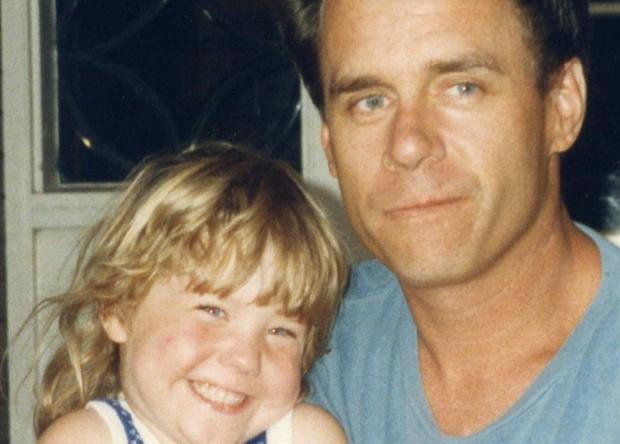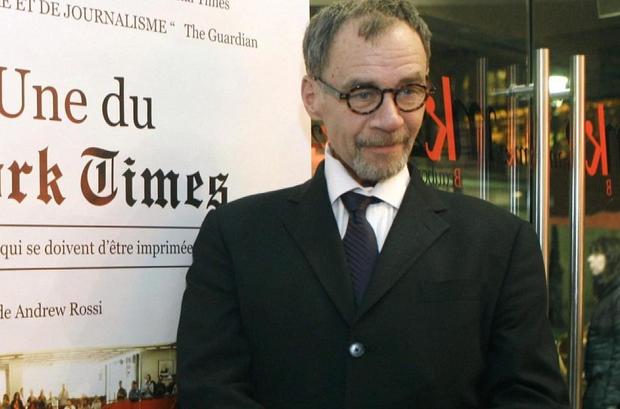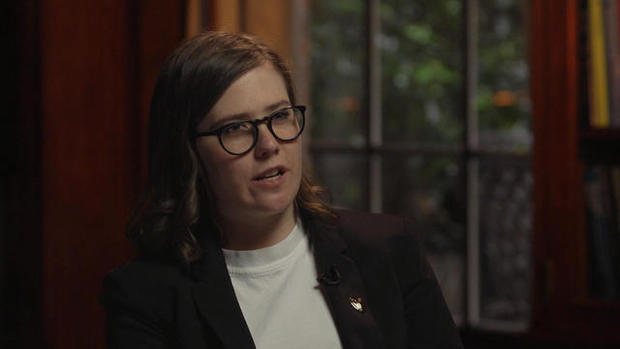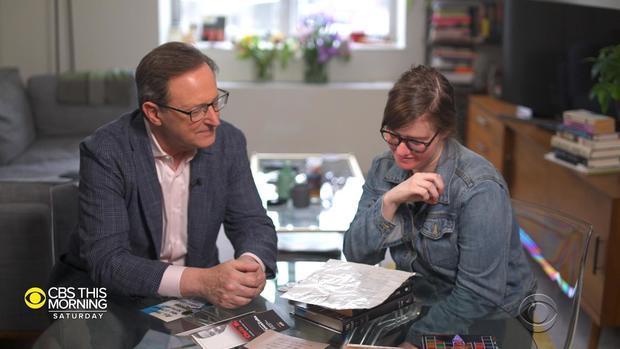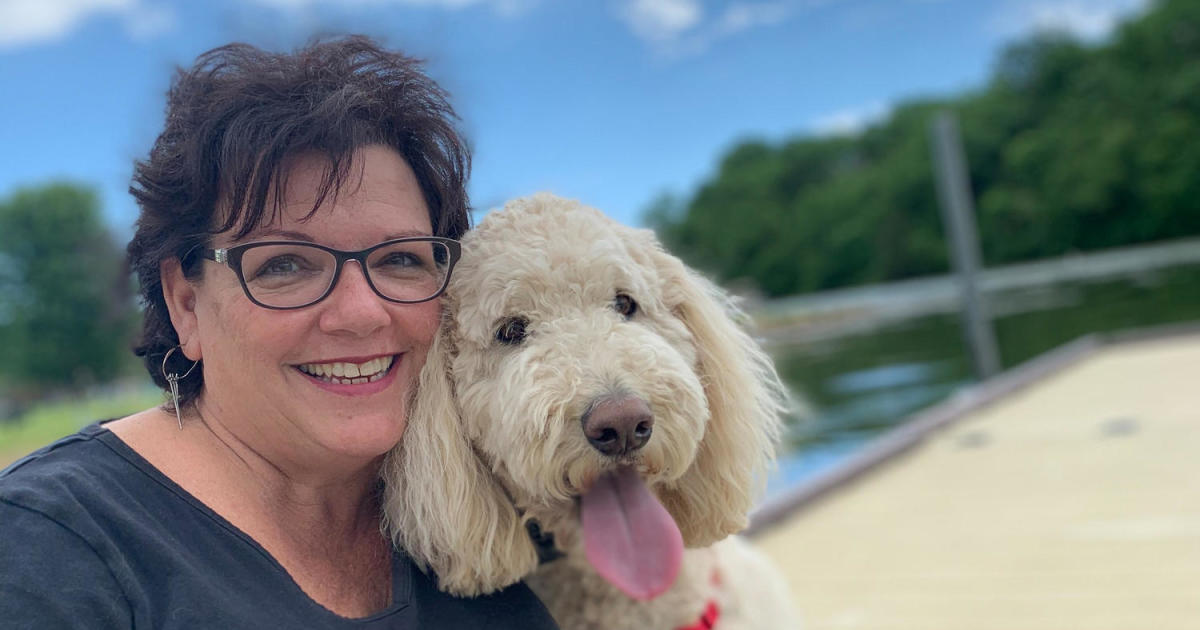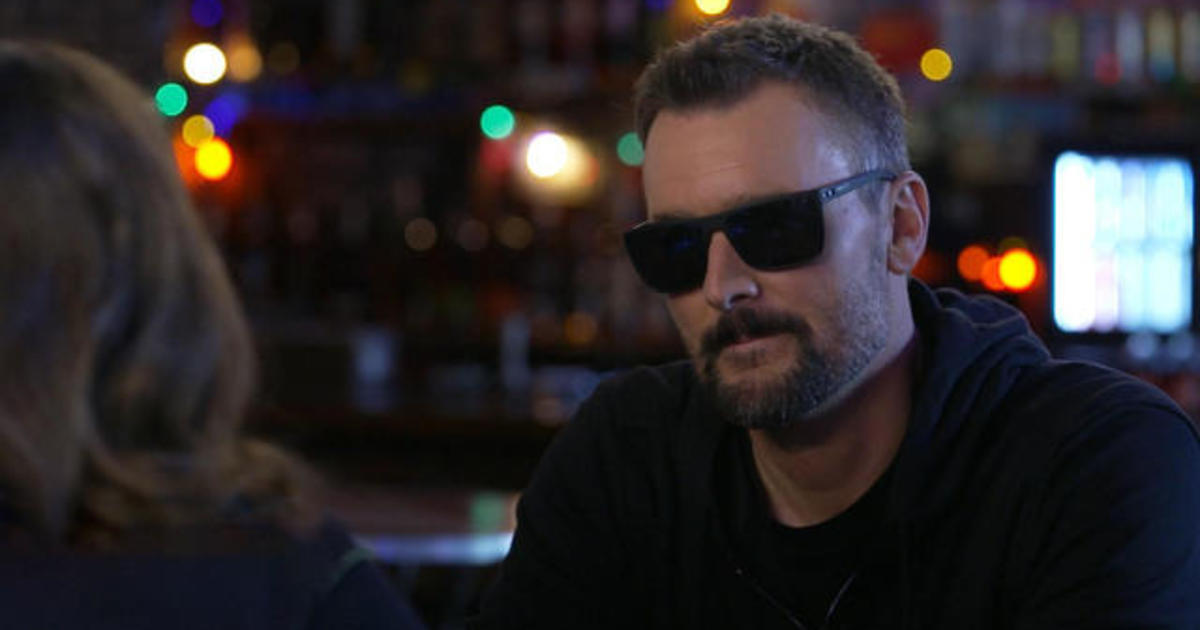Director Erin Lee Carr on living with her father David Carr's legacy
Director Erin Lee Carr has two acclaimed documentaries appearing on HBO this year: "I Love You, Now Die" and "At the Heart of Gold." The 31-year-old filmmaker also recently published her first book, "All That You Leave Behind," a memoir of her relationship with her late father, the acclaimed New York Times journalist David Carr.
When he was still alive, David Carr wrote often to his daughter. She kept everything – including a letter that came on her 21st birthday listing the reasons he loved her. "He called me Dolly. 'Dolly, do you have any idea how much I adore and think of you?'" she read. "'You are the fundamental joy of my life… There is so much to like about who you're becoming that it makes for a very long list… You are smart and getting smarter. You are afraid of very few things.'"
"I thought it was so special," she told "CBS This Morning" co-host Anthony Mason.
Five years later, when Erin was 26, her father collapsed on the floor of The New York Times. He died from complications related to lung cancer at the age of 58.
"It's very weird to see 'September 8, 1956, to February 12, 2015.' Like, that doesn't make any sense to me," Carr said.
A beloved media columnist at the Times, Carr was a mentor to many, including his daughter. He helped launch her career as a documentary filmmaker.
"He wrote to me, 'You are a Carr, and that is a wondrous, complicated inheritance,'" she said.
"I loved the good stuff, which were his emails, his advice, gossiping about media, watching movies, thinking about things," she added. "Those things outweighed the complicating factors for me, which would be his intensity, his harshness, the expectations he had for me."
"The reward for achievement is a hunger for more," Carr wrote to his daughter, is "a blessing that lives inside a curse." Another curse in Carr's life -- as he detailed in his own memoir, 'The Night of the Gun'" – was his drug addiction.
"We don't think of proper New York Times journalists as having crack addictions," she said. "And so when I think about my dad's life -- as a former drug addict and alcoholic -- it really spooked me… When he got sober, [it was] in large part to take care of my twin sister and I, because my mother was gone. She was not there. The stakes were huge."
In writing her memoir of their relationship, Carr knew she had to be equally honest. That meant confronting her own issues with alcoholism.
"You have to be ready, to write about something like that," Mason said.
"I don't know if I'm ever truly ready for the things that I start to do," she said. "I think we have a family code that says 'Move towards fear.' You know what I mean? 'Do something that makes you nervous every single day.'"
"It turned out," Carr eventually wrote, "that alcoholism and ongoing struggles with booze were some of the many traits that I shared with my father."
While she and her father spoke often about addiction, she said, "he kind of let me figure it out and fall down… if I really asked for help, you know, he would return my phone call. He would bring me to a meeting. But he knew that a person can only get and stay sober for themselves."
Around the time Carr died, she added, she was going through a relapse. "I mean, he was my sober role model," she said. "And the fact that he died so early was so jarring."
"I had so many questions for him," Carr wrote in the memoir. "How do I live sober? Why were you so hard on me? Why were you so hard on yourself?"
But the most difficult question, she said, is "'who am I without you?'"
"I think that it's so painful to try to figure this out without him," she added.
When asked about the shadow cast by her fathers' legacy, Carr said "the shadow's still there."
"I think there is a deep and resounding love for David Carr, and we sit here four years later, and I feel very grateful for the spell he cast," she added. "For a lot of people, the shadow would consume them. But I choose to embrace it."
In writing her story, Carr went back to the nearly 2,000 notes, emails and texts her father had sent her.
"I think that the book is an exploration of me continuing to talk to him," she said.
"Did you discover that you can still talk to him?" Mason asked.
"I think on his birthday, I can hear him," she said. "One year, when I was in college, I forgot his birthday and he lost his mind. And he just said 'That is the most hurtful thing you could ever do, to forget about me' And so now, every year on his birthday, I'm like 'I remember it's your birthday, I'm sorry'… I don't know if he's really there, or if that's just, like, kind of my imagination, because I studied him so much."
"No. He's there," Mason responded.
